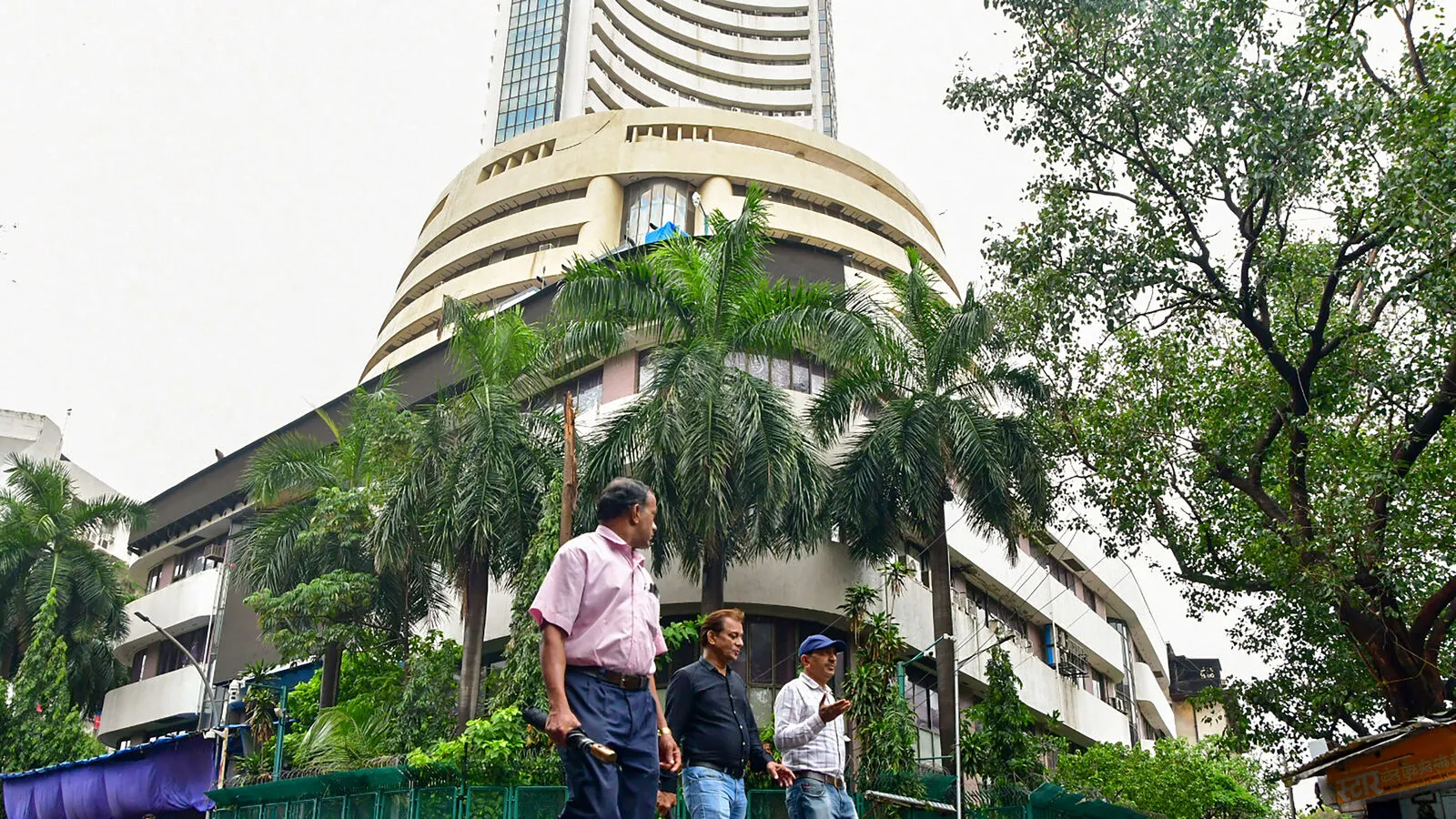Bulls return on trade deal hopes, but caution the watchword

Mumbai: Bulls made a smart comeback to the Indian markets on Friday, with benchmark indices climbing nearly 2% with some help from short covering and selective buying. Alongside, fear gauge India Vix cooled by 6% to 20.11, after spiking 66% on Monday.
The upturn came on the back of rising hopes of a bilateral trade agreement between India and the US after the latter paused reciprocal tariffs for three months on all its trading partners, excluding China.
Significantly, although the Indian markets outperformed most peers—South Korea’s Kospi and Japan’s Nikkei closed down 0.5 and 3% each—bears didn’t close out a significant number of their bearish positions, underscoring the uncertainty in the global economy and financial markets.
Experts warned against getting hopes too high considering the volatile geopolitical scenario, even as foreign investors continued their selling spree in the domestic market, outstripping 2024’s selling in less than four months of 2025.
Also read | The stock market’s fear gauges point to a bounce, not a bottom
The Nifty closed 1.9% in the green at 22,828.55 while the Sensex settled 1.77% higher at 75,157.26 as bears cut some shorts. At the same time, some buying emerged in counters such as metals, consumer durables, pharma and autos.
Market breadth was positive, too, with around five stocks advancing for every one that declined. The Nifty Smallcap 250 index outperformed the benchmarks, closing 3.07% higher at 14,786.30.
The stocks that contributed most to the Nifty’s 429.4 point gain included HDFC Bank (67.61 points), Reliance Industries (51.9), Bharti Airtel (26.72), Kotak Mahindra Bank (18.58), and ICICI Bank (17.55).
In relative terms, the top Nifty gainers were Jio Financial Services, Coal India, Tata Steel, JSW Steel and Hindalco which gained between 4% and 7%. To be sure, the US has imposed a 25% tariff on all metal and auto imports, which, unlike the reciprocal tariffs, haven’t been paused.
Hopes of a bilateral trade deal with the US over the next few months resulted in a relief rally on badly beaten down metal stocks on Friday. The Nifty Metal index closed at 8,168.3, after hitting a 52-week low of 7,690.2 on Monday.
Also read | Stock Squid Game: Who’s at risk, who gets hurt, and how to save your skin
On Friday, foreign institutional investors net sold shares worth a provisional ₹2,519 crore. Domestic institutional investors (DIIs), on the other hand, net purchased a provisional ₹3,759 crore worth of shares, per data from BSE.
FPIs closed out bearish index futures bets worth ₹2,418 crore, aiding Friday’s rally, per NSE data. On a weekly basis though, markets closed lower for a second straight week as a fallout of the reciprocal tariff imposition from 9 April on US’s trading partners. The Sensex posted a 0.28% decline on a weekly basis while Nifty fell 0.33%.
Caution is key
However, despite Friday’s rally, market experts advised caution, given the uncertainty posed by the policy flip-flops of the mercurial US president.
“Prior to the reciprocal tariffs imposition, I would have restricted equity allocation to 30-40%,” said Gaurang Shah, head investment strategist of Geojit. “Now I’d allocate 15-20%. Though US-India trade deal could be in the works, there’s still no certainty of one and markets don’t like uncertainty.”
Also read | Mint Explainer: What Trump’s tariff shock on Indian markets means for investors
“In the current environment, it’s best to be out of frothy areas and remain invested to the extent of one’s equity allocation,” said Devina Mehra, founder and chairperson of First Global.
The China factor
While many countries are queuing up for trade negotiations with the US, the outbreak of an all-out tariff war between the US and China once again spooked global markets after Wednesday’s global relief rally across markets.
The US has imposed a 145% tariff on imports from China, which retaliated by imposing 125% on US imports in the latest round. This tariff war put pressure on US bond yields, which signal a rise in cost of borrowing amid rising inflation.
Also read | Will lower tariffs lure back FPIs from other emerging markets?
The US 10-year bond yield traded up 2 basis points intraday Friday at 4.44%, spiking from 3.9% last Friday amid rising fears of stagflation (low growth and high inflation) posed by the tariffs on the US economy.
FPI selling continues
India has been hit by huge foreign investor selling since Trump’s inauguration as president of the US on 20 January. Trump had in his presidential campaign vowed to raise tariffs on all trading partners which he claimed were “unfair” given their high tariff and non-tariff barriers on US goods.
FPIs (foreign portfolio investors) have sold secondary market shares worth ₹1.62 trillion so far this calendar year— Friday’s figures were awaited — per National Securities Depository Ltd (NSDL).
Also read | Tuesday’s relief rally over, tariff jitters and RBI policy back in focus
In barely four months, this is more than the ₹1.21 trillion sold in the whole of last year and greater than the record Rs1.46 trillion seen in 2022.
Their selling came on the back of relatively high valuations of Indian stocks and slowing earnings growth. Now, the selling has been amplified by fears of a recession back home as well as globally.
Bears on the prowl
While the active Nifty weekly contract saw the number of put options sold increasing to a provisional 80 on Friday from 74 a day earlier, compared to 100 calls sold on both the days, the fact of fewer puts being sold reinforces the fear of continuing market correction.
The Nifty had plumbed 17% from a record high of 26,277.35 on 27 September last year to a low of 21,743.65 on Monday as FPIs pressed the sell button.
While DIIs have net purchased shares worth ₹2.13 trillion so far this year, they have absorbed the FPI selling by bidding at lower rates, making FPI exits more difficult.








